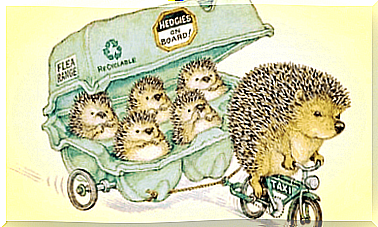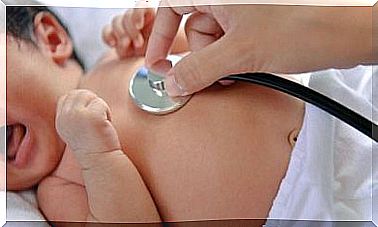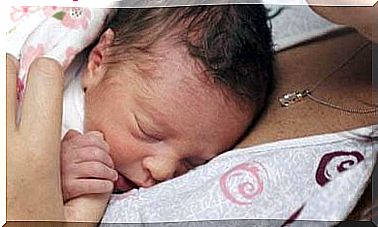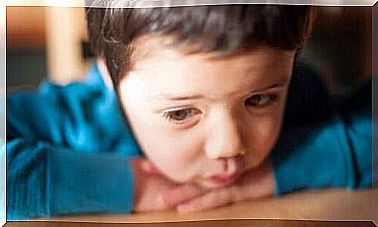Men Also Suffer From Postpartum Depression
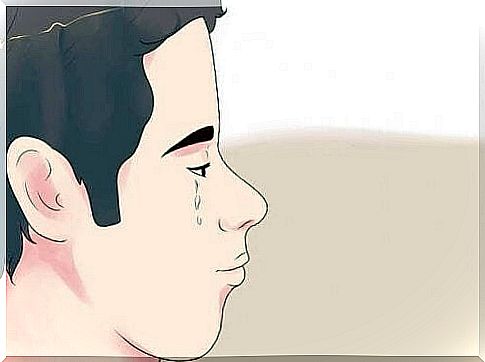
Postpartum depression is a suffering particularly associated with women. However, specialists say that men can also suffer from it.
When the baby is born, many changes take place on a personal, social and family level. Nobody doubts the joy that the arrival of a child brings, but sometimes emotions betray. As you know, mothers are the ones who go through the most changes, but they aren’t the only ones. Life as a couple is completely transformed after the birth of a child.
Let’s clarify that male postpartum depression is not like female one. This means that the symptoms are different. When it comes to depression, it is usually associated with sadness. But in men this is not characterized by depressed moods, on the contrary, it manifests itself with aggression and irritability.
How does postpartum depression manifest in men?
One of the main signs of postpartum depression that affects women after giving birth is a lack of motivation and isolation. In the case of men, this type of suffering has the same origin but is expressed differently. Hence, the man suffering from this problem may feel sad and dejected but will manifest it in another way.
Postpartum depression in men generally occurs between three and six months after the baby is born. The woman’s effort is physical and psychological throughout pregnancy, which generates emotional congestion in the puerperium. However, men also strive mentally and emotionally at this stage.

Lucía Galán, pediatrician and author of books such as ” You are a wonderful mother ” and ” The best of our lives “, explains the psychological effects of pregnancy on men. According to this specialist, fatherhood creates a lot of pressure in a man. Changes in one’s life become evident during gestation, and promise to be permanent.
The pediatrician says that fathers approached her with the same concerns as mothers. They too are stressed by the evolution of the newborn, a possible disease or not knowing how to take care of him. Despite this, the main causes of depression are not being able to have answers and feeling powerless in the face of these doubts.
Characteristics of suffering
It’s hard to see a man suffering from postpartum depression stand in a corner crying. His suffering is noticeable in several ways. For example, not knowing how to help your partner, thus being apathetic. Other characteristics of its behavior can be the following:
- Aggression
- Demotivation
- Drastic mood swings
- Anxiety
- Irritability
- Concern
- Lack of energy
Most of these symptoms can be clearly perceived, except that they cannot always be interpreted in the right way at home. The doctor states that most of her male patients don’t open up much to her about their problem. But only after several meetings do they begin to let off steam.

They claim to have fears regarding the child and the relationship with the partner. Also, a man has a hard time understanding the female body and that is why it upsets him to see how it transforms. According to the author, men worry that their partner is not getting back in shape as before. They believe they feel much worse than they actually feel.
The main challenge is to understand exclusion
It is not that they feel excluded, in fact they are. Despite the great importance that the partner has even after the arrival of a baby, the newborn will be the priority after birth. It is complex to manage this situation and no one can judge the made that fills the newcomer with attention. Therefore, in most activities, the father takes a back seat.
Being a mother or a father does not prevent you from continuing to feel and think like being human. Although the brain changes in mothers are recognized, they can reason normally. Without putting aside the needs of the newborn, it is not easy to give priority back to oneself. For this reason, even if the father knows and feels he is important, he has a hard time accepting it.
The doctor explains that a father does not know he is, until the birth of his son. This means that while the mother transforms emotionally, mentally and physically to be a mother, the man often does not. This causes paternity to come to him suddenly. If it’s the first time, he has no idea what to expect; its role at this stage was unimaginable.
It must be considered that this behavior often also derives from a sort of “Peter Pan syndrome”, for which many men prolong adolescence well beyond its natural limits.
And what to do then? First, keep communication open in the couple. Always speak sincerely about your feelings and needs. But always remember that depression also requires therapeutic help.
Main image courtesy of © wikiHow.com

